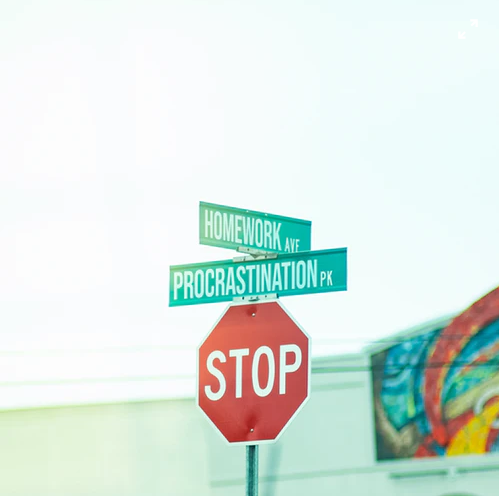Procrastination and Its Effects

Photo by Pedro da Silva on Unsplash
Procrastination street sign.
January 31, 2020
Procrastination can often be one of the main barriers blocking you from spending your time wisely and attaining your dream life. When procrastinating, you spend your time doing things that don’t matter, when you could have been spending time doing your work or resting leading to less worrying about deadlines. Students who procrastinate know that there will be negative consequences when doing so.
Students should stop procrastinating because this habit will have negative effects throughout your life. Jamming all your homework into one day is a poor choice as it will affect your sleep and how you perform at school.
Ivan Shin, a sixth-grader at McAuliffe, shares, “I think that procrastination is bad because you’re going to do all your work in one day and you’re going to regret it. It is also bad because it just doesn’t affect your work, it affects you in many ways.”
If you procrastinate, it can cause anxiety, fatigue, low self-esteem, damaged relationships, and career setbacks. Anxiety is caused when students constantly overthink about the tasks that need to be completed. Fatigue, sleep deprivation and rushing to keep up with due dates leads to both mental and physical exhaustion.
Connor Carruth, a seventh-grader at McAuliffe, also expresses, “No, I do not support procrastination, but I do it sometimes because I forget. Procrastination is bad for you only if you do it on purpose.”
Procrastination is a harmful habit and negatively impacts you. When you stop procrastinating it will make you feel free from the thought of completing tasks. There are many ways to stop procrastination. Start by organizing your tasks and setting a personal deadline for them.

